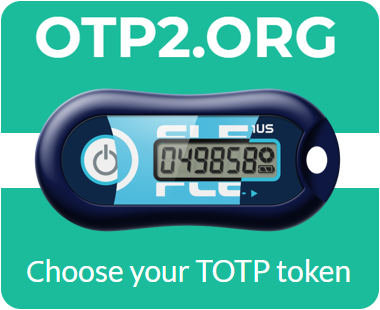From military applications to everyday use, Virtual Private Networks (VPNs) have come a long way in the last few decades. Originally developed to allow remote access to secure information for military personnel, VPNs have now become an essential tool for businesses, individuals, and organizations looking to protect their online privacy and security. With the rise of cyber threats and data breaches, VPNs have become a popular solution for users looking to encrypt their online activities and keep their personal information safe from prying eyes. In this article, we’ll take a journey through the evolution of VPNs, from their humble beginnings as a military tool to their widespread adoption as a must-have cybersecurity tool in today’s digital age. So, buckle up and get ready to discover the fascinating history behind one of the most important cybersecurity tools of our time.
What are Virtual Private Networks (VPNs)?
A Virtual Private Network (VPN) is a secure and private connection between two or more devices over the internet. It allows users to send and receive data as if their devices were directly connected to a private network, even if they are located in different parts of the world. VPNs use encryption to create a secure tunnel through which data can be transmitted safely, protecting users from prying eyes and cyber threats.
VPNs work by routing a user’s internet traffic through a remote server, which can be located anywhere in the world. The user’s device connects to the VPN server, and all internet traffic is encrypted and sent through the secure tunnel. This allows users to access websites and online services that may be blocked or restricted in their location, as well as keeping their online activities private and secure.
The History of VPNs
The history of VPNs can be traced back to the late 1990s when businesses began using them to provide remote access to their employees. However, the origins of VPN technology can be traced back even further, to the time when the internet was still in its infancy.
In the early days of the internet, businesses and organizations would use private networks to connect their offices and employees. These private networks were expensive to set up and maintain, and they were often limited to specific geographic locations. As the internet grew in popularity, businesses began to look for ways to use it to connect their offices and employees more cost-effectively.
The first VPNs were developed in the mid-1990s as a way for businesses to provide remote access to their employees. These early VPNs used point-to-point tunneling protocols (PPTP) to create a secure connection between a user’s device and the company’s private network. However, PPTP had several security flaws, and it was quickly replaced by more secure VPN protocols.
The Evolution of VPNs from Military Applications to Everyday Use
VPNs were originally developed as a military tool to allow remote access to secure information. The first VPNs were used by the US military to allow soldiers to securely access classified information from remote locations. However, as the technology evolved, VPNs became more widely used in the business world.
In the 1990s, businesses began using VPNs to provide remote access to their employees. This allowed employees to work from home or on the road while still being able to access the company’s private network. As the internet grew in popularity, VPNs became more widely used, and their capabilities expanded.
Today, VPNs are used by individuals, businesses, and organizations all over the world to protect their online privacy and security. They have become an essential tool for anyone who wants to keep their online activities private and secure.
The Benefits of Using VPNs for Online Security and Privacy
There are many benefits to using VPNs for online security and privacy. Perhaps the most significant benefit is that VPNs encrypt all internet traffic, protecting users from prying eyes and cyber threats. This means that even if a user is using public Wi-Fi, their online activities are protected from hackers and other malicious actors.
VPNs also allow users to access websites and online services that may be blocked or restricted in their location. For example, someone in China may use a VPN to access websites and services that are blocked by the government.
VPNs can also be used to bypass internet restrictions in schools or workplaces. For example, many schools and workplaces block social media websites like Facebook and Twitter. By using a VPN, students and employees can bypass these restrictions and access these websites.
How VPNs Work to Protect Your Online Activities
VPNs work by creating a secure and encrypted tunnel through which all internet traffic is routed. When a user connects to a VPN server, their device sends all internet traffic through this secure tunnel. The VPN server then decrypts the traffic and sends it on to its final destination.
This means that all internet traffic is encrypted and protected from prying eyes. Hackers and other malicious actors cannot intercept the traffic and steal user data or passwords.
VPNs also hide a user’s IP address, making it more difficult for websites and online services to track their online activities. This is particularly important for people who are concerned about their online privacy.
Types of VPNs and How to Choose the Right One for Your Needs
There are several types of VPNs available, each with its own strengths and weaknesses. The most common types of VPNs are:
- Remote access VPNs: These are used by businesses to provide remote access to their employees. They allow employees to securely access the company’s private network from anywhere in the world.
- Site-to-site VPNs: These are used to connect multiple locations of a business. They allow employees to securely access resources and information across different locations.
- Mobile VPNs: These are used by individuals to protect their online activities while using mobile devices like smartphones and tablets.
When choosing a VPN, it’s important to consider factors like speed, security, and ease of use. Some VPNs may be faster than others, but they may not offer the same level of security. Similarly, some VPNs may be easier to use, but they may not offer the same level of customization.
Common Misconceptions About VPNs
There are several common misconceptions about VPNs that can be confusing for users. For example, some people believe that VPNs are illegal or that they are only used by hackers and other malicious actors. However, these misconceptions are not true.
VPNs are legal in most countries, although there are some exceptions. For example, some countries like China and Russia have strict internet censorship laws that make it illegal to use a VPN.
Similarly, VPNs are not only used by hackers and other malicious actors. While it’s true that some people use VPNs for illegal activities, most VPN users are simply looking to protect their online privacy and security.
VPNs and Their Role in Today’s Digital Age
VPNs have become an essential tool for online privacy and security in today’s digital age. With the rise of cyber threats and data breaches, VPNs have become a popular solution for users looking to encrypt their online activities and keep their personal information safe from prying eyes.
VPNs are used by individuals, businesses, and organizations all over the world to protect their online privacy and security. They have become an essential tool for anyone who wants to keep their online activities private and secure.
The Future of VPN Technology
The future of VPN technology looks bright. As cyber threats continue to evolve and become more sophisticated, VPNs will continue to play an important role in online security and privacy.
One of the most significant developments in VPN technology is the rise of cloud-based VPNs. These VPNs are hosted in the cloud and can be accessed from anywhere in the world. They offer faster speeds and greater scalability than traditional VPNs, making them ideal for businesses and organizations with large numbers of remote employees.
Conclusion: Why VPNs are an Essential Tool for Online Privacy and Security
From military applications to everyday use, Virtual Private Networks (VPNs) have come a long way in the last few decades. Originally developed to allow remote access to secure information for military personnel, VPNs have now become an essential tool for businesses, individuals, and organizations looking to protect their online privacy and security.
VPNs offer many benefits, including the ability to encrypt all internet traffic, hide a user’s IP address, and bypass internet restrictions. They have become an essential tool for anyone who wants to keep their online activities private and secure.
As the internet continues to evolve and cyber threats become more sophisticated, VPNs will continue to play an important role in online privacy and security. Whether you’re a business looking to provide remote access to your employees or an individual looking to protect your online activities, VPNs are an essential tool that can help keep you safe and secure online.





1 comment
Wow, wonderful blog layout! How long have you been blogging for? you made blogging look easy. The overall look of your site is excellent, let alone the content!